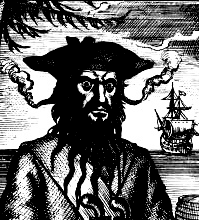When they came to the end of the orchard, they again sat against the carob tree and opened their bags. "I hope you brought some of your mum's halloumi" Paráskos". "Of course, never without some". Angelís brought out a bag with olives, some cucumbers and tomatoes and some fresh bread which his grandmother had baked the day before, all carefully wrapped in a cloth. They laid it all on a rock, and had breakfast lying against the carob trunk and looking at the aerial activity. A kourkoutás was watching them curiously from a hole in the carob trunk. They spotted a flock of starlings in the sky, flying south. They'd love to catch a couple of them, they were beautiful and their song was glorious. But they had other things to catch.
They finished their breakfast, wrapped up their things and started walking carefully towards the olive grove. They could see some birds were already caught, but treaded slowly so as not to scare away any more that could still be around. Paráskos spotted a thrush caught on one of his sticks, and quickly climbed the tree to collect it before it managed to break off. They climbed all their trees and quickly collected their harvest: blackcaps, robins, chiffchaffs, finches. Angelís put all the seed-eating birds in his cage: a couple of goldfinches, a chaffinch and a couple of greenfinches. Birds which ate seeds were kept as pets, and some, such as goldfinches, were particularly loved. They killed the other birds-those would end up on the dinner table as a delicacy.
They went back to their carob tree to rest, leaving the cage with the captured birds in the grove to attract more with their chirping. They sat around for a while, but they soon got bored waiting. Paráskos picked up an empty, rusty can and put it on the ground against the carob tree. Angelís didn't take long to figure out what he was trying to do. They both stood a few meters away from the can and started aiming for it, using pebbles instead of shot. After two or three attempts, Angelís hit the can, the pebble bouncing off it, leaving a hollow metallic sound. They stood it up and started all over again, everything was a competition.
After a while, it was time to check on their trees again. They started walking towards the grove, but their cautious approach was interrupted by Paráskos' loud shouting: "run! There's a blackbird!" Angelís dropped all he was carrying and started running as fast as he could, stumbling and falling in the freshly-ploughed field. He quickly climbed the olive tree and made it to the branch where the blackbird was caught. He grabbed it carefully with his right hand, holding the lime stick with the left as he carefully released the bird without damaging its feathers. He held it as if it was the most fragile piece of porcelan ever. He could feel the bird's tiny heart beating fast. He slowly climbed down, holding the bird with great care. They loved blackbirds and valued them greatly. It was rare they ever caught one, but when they did it filled them with pride.
He put the bird gently in the cage. It was time to gather their sticks and go home as the birds in the cage needed to be cared for. So they started again, in reverse to what they'd done before dawn. They gathered their lime sticks, rolling them together into bunches and placing them in the koukkourká. As Paráskos was on his second tree, he heard a heavy flapping near him. He looked up and spotted a falcon making for the grove at great speed. Angelís had seen it too. They both started shouting to scare it off, but to no avail. The falcon swooped and landed on a lime stick on one of the trees where a chiffchaff had been caught. It grabbed the small bird, and flew off taking the lime stick with it.
They gathered all their things, except for Paráskos' lost stick, and prepared to walk back home. It was just after noon and they were getting quite hungry. Paráskos mused: "I guess Mr Falcon deserved his harvest as much as we did." "Yes, no grudges", replied Angelís. He had as much right to the sky's harvest, if not more. Walking out of the grove and through the fruit orchard, the boys stopped and picked themselves some pomegranates. They sat under their carob tree once more, cutting the pomegranates open and feasting on their juicy insides. They tasted better than anything in the world.
They'd caught about a dozen each









